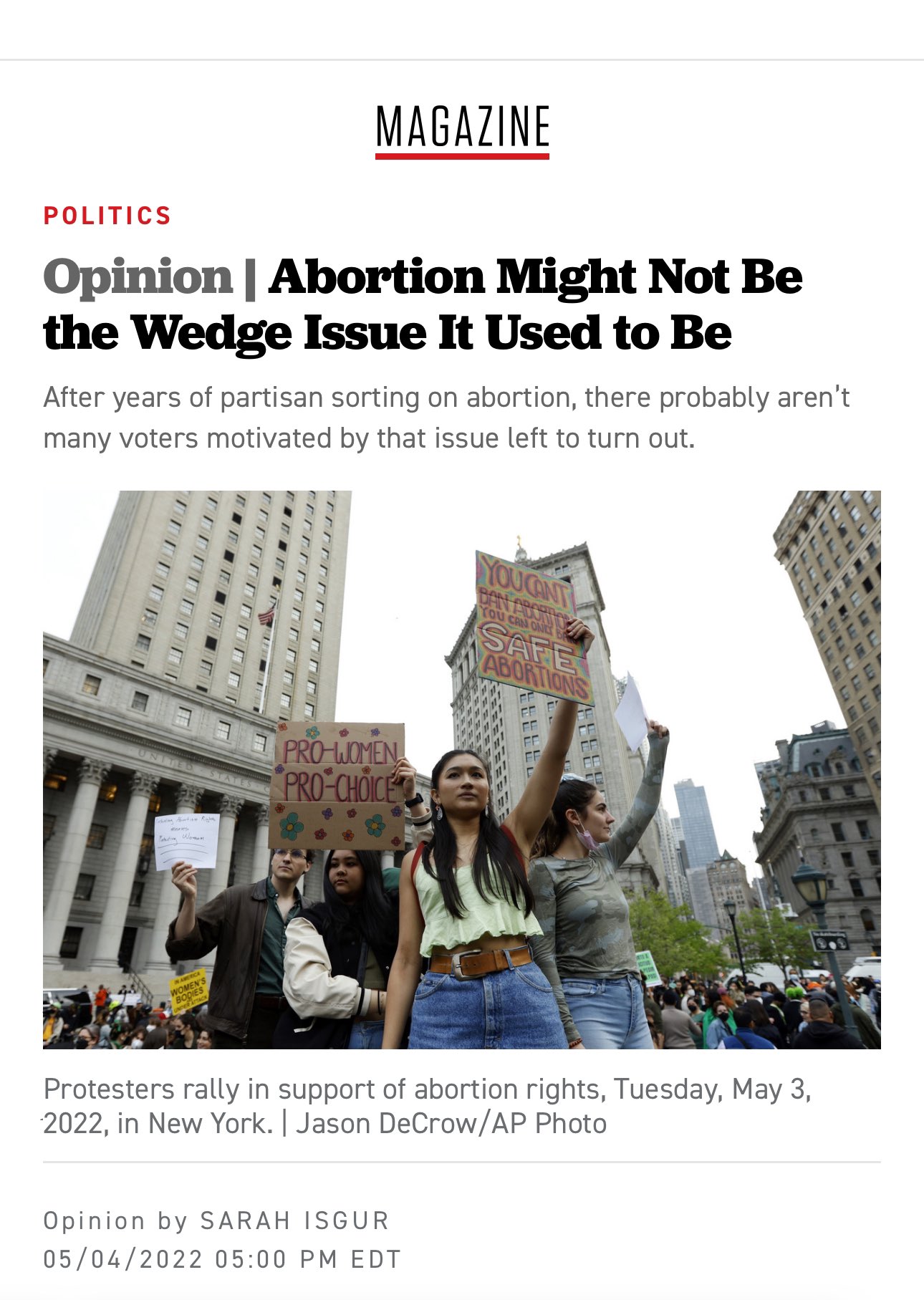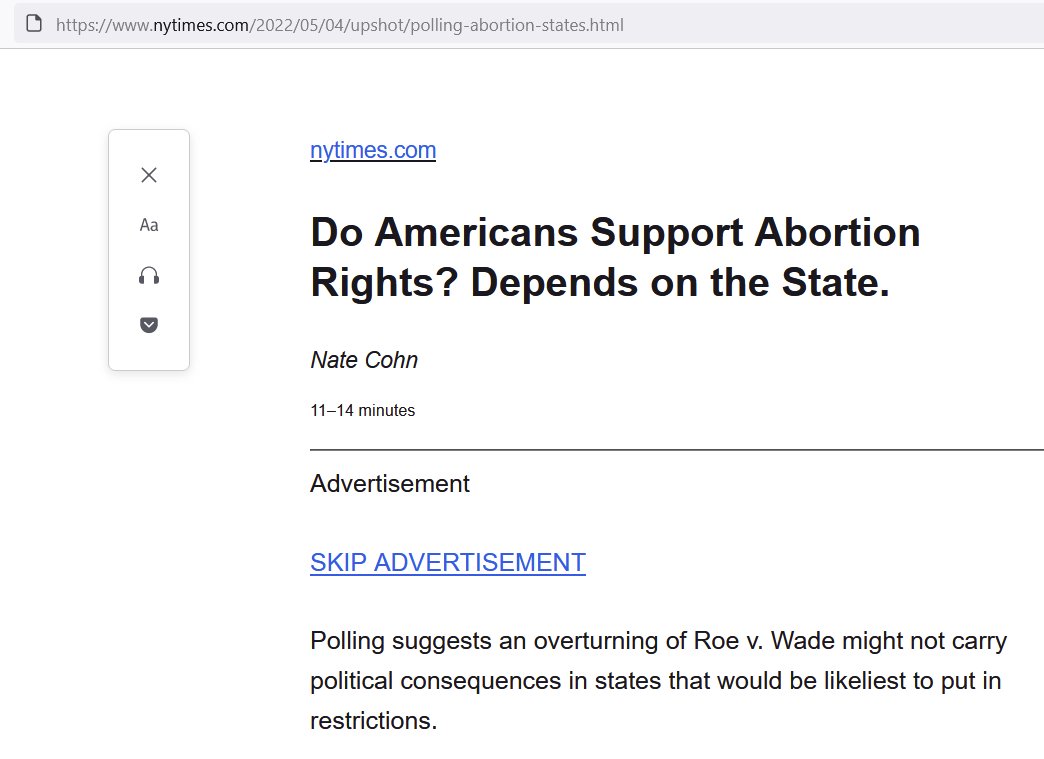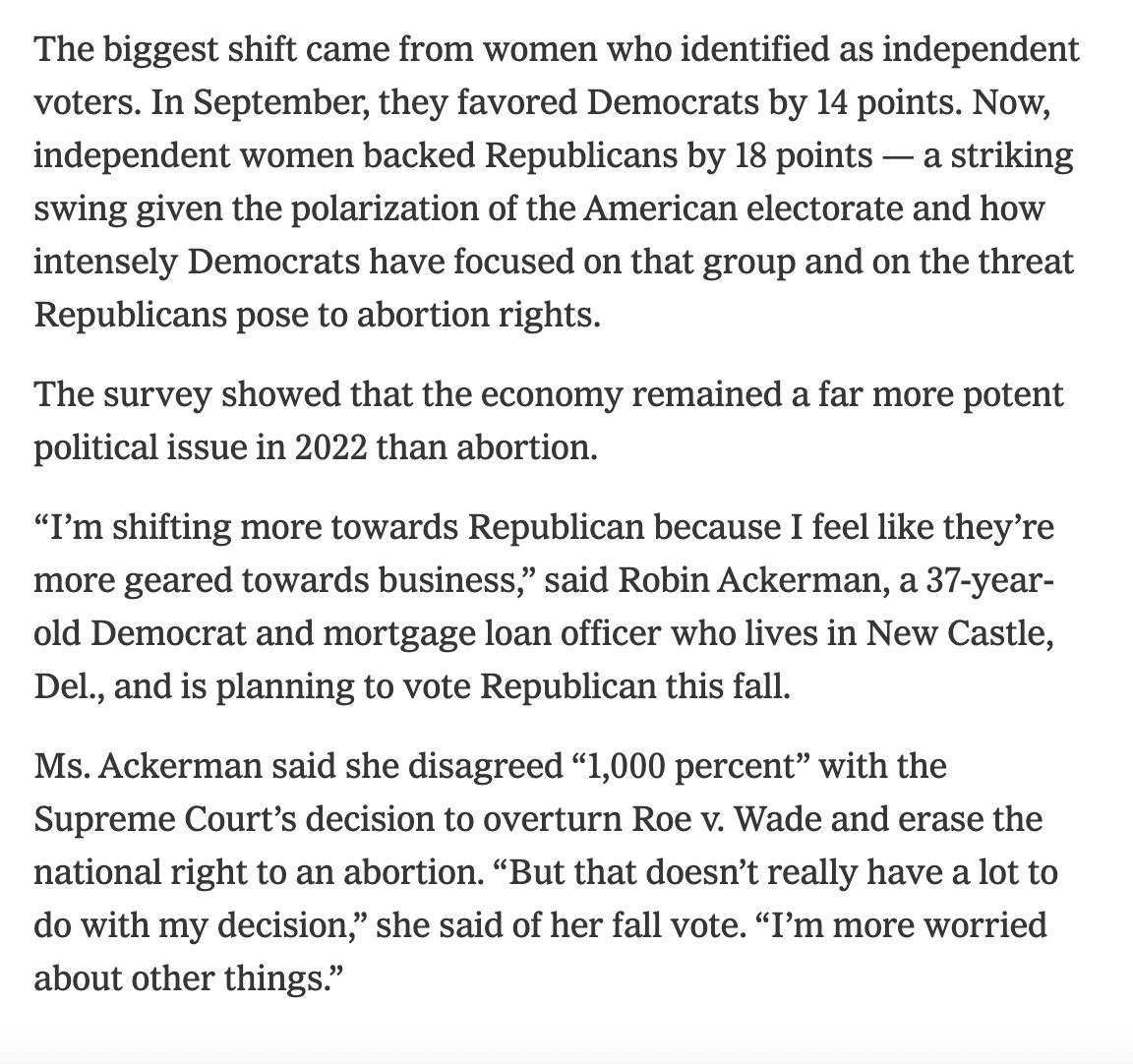To understand the politics of 2024, you need to understand the political journalism of 2022.
Tom Bonier, the analyst who probably came off the best over the past couple of years, has a highly recommended thread commemorating the anniversary of the Dobbs decision.
[For those who prefer their threads rolled up, here's a link.]
One important aspect which Bonier hits only tangentially is how
rapidly the establishment press, particularly the New York Times and Politico, converged on the Dobbs-won't-matter narrative, and how far they have been
willing to go to protect it from a growing mountain of conflicting data.
After
you've been following the mainstream press for a while, the appeal of
the narrative is not difficult to reverse engineer. If you are leery of
being seen as a cheerleader for the Democrats, nervous about Republicans
working the refs, and generally inclined to picture yourself as sober
and above the fray," no big deal" was the obvious choice.
https://x.com/MollyJongFast/statu
Some of
the sharper and more independent minded observers like Bonier
immediately spotted trends in the data that undercut the narrative...
But most data journalists were treating the data as a drunkard's lamppost, a source not of illumination but of support for the approved Dobbs narrative and for that of the red wave.
NYT 2022/10/17
Since the midterms, we've seen a lot of moonwalking and "but next time it'll be different" analyses, often with a data-based veneer (there is an essential distinction between following the data and coming up with an argument that supports your preferred point and doesn't conflict with the data). There has also been an alarming rush to credulously embrace Republican spin about how the election is going. The latest example being that Trump and the GOP have successfully pivoted to the center.
NYT columnist and good soldier, Ezra Klein:
I
found myself, this week, watching Trump’s May 1 rally in Waukesha, Wis.
Most of it features Trump’s constant stream of overstatement, false
nostalgia, wild braggadocio and barely veiled threat. But the tenor
changed when Trump turned to abortion. Here, Trump swung suddenly to the
left of his own base. The goal, he said, was “to get abortion out of
the federal government. Everybody wanted that. That was uniform. Then
about 10 years ago, people lost their way. They started talking about —
how many months?”
This is Trump’s pivot on abortion. Unlike other
Republicans [The "other" is doing a bit of heavy lifting here. -- MP], he’s saying the goal wasn’t, and isn’t, a nationwide
abortion ban. The goal was letting states decide for themselves, and now
they are.
“There are some very conservative states that voted a
very much more liberal policy than anybody would’ve thought,” Trump
said. “Very liberal policy, a couple of states. I won’t mention, but a
couple of states really surprise people. But, basically the states
decide on abortion. And people are absolutely thrilled with the way
that’s going on.”
Thrilled? The one time you can hear the crowd
boo Trump is during his abortion spiel. But he doesn’t back down. I
don’t know if Trump’s effort to run to the center on abortion will work,
but he’s definitely going to try, even if it offends his base. Is there
any issue on which Biden is doing the same?
With the possible exception of Klein and a couple of interns at Fox, no one actually believes that focusing on the overturning of Roe V Wade constitutes a pivot to the center, even if we forget about all the times that Donald Trump has abandoned actual centrist positions from previous campaigns. Dobbs was insanely unpopular from the beginning and has only grown more so as its scope has increased and the horror stories have accumulated, and Dobbs was correct is very much Trump's position.
[I don't hear a lot of booing.]
As spelled out in a typically solid TPM post by Emine Yücel, the Republicans have no good messaging options when it comes to reproductive rights and particularly IVF. At this point, they're simply thrashing around looking for the least bad option. Perhaps the only thing working in their favor is the reluctance of publications like the New York Times and Politico to admit they got this story wrong.




